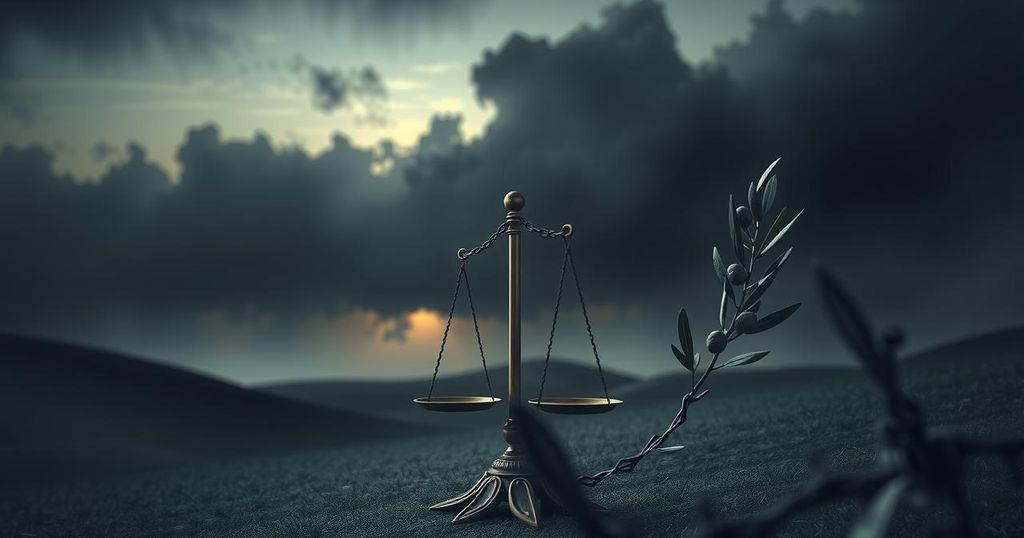The DRC faces potential conflict as M23 rebels, backed by Rwanda, capture key territories. UN Secretary-General urges Rwanda to withdraw support amidst rising humanitarian crises. Historical ties between Rwanda and the DRC complicate the situation, with Western nations criticized for their past complacency. To prevent escalation, immediate diplomatic action is required.
A potential major conflict is on the horizon, exacerbated by Western support for Rwanda amid escalating violence in the Democratic Republic of the Congo (DRC). This week, rebel forces known as M23 captured Goma, the eastern DRC’s largest city, while backed by Rwandan troops. United Nations Secretary-General António Guterres urged Rwanda to cease its support for M23, highlighting the grave humanitarian crisis affecting millions of civilians.
The M23 insurgency has gained momentum since 2021, claiming significant territory around Goma, a strategic urban center near the Rwandan border. Angered by the situation, residents in Kinshasa protested against Rwandan, French, and U.S. embassies, reflecting rising tensions and accusations aimed at Western governments for their past complacency in the region’s turmoil.
Rwanda’s interventions in the DRC have historical roots, with President Paul Kagame often defending them as necessary to protect Tutsi interests amid threats from Hutus, who hold a legacy from the 1994 genocide. However, these conflicts have served greater economic and political interests, including the extraction of mineral wealth. The M23, formed in 2012, has deep roots in previous rebellions, and similar patterns have emerged since.
Historically, Western officials have been reluctant to confront Rwanda over its destabilizing activities in the DRC. Kagame is often lauded for steering Rwanda toward recovery post-genocide. Occasional acknowledgment of Rwandan involvement in DRC conflicts has led to brief aid disruptions, but Rwanda continues to rely significantly on foreign assistance for its budget.
When Felix Tshisekedi became DRC’s president in 2019, he attempted cooperation with Rwanda against common enemies. However, that backdrop of friendship crumbled as M23 rebels began to re-establish their foothold in the region. As Western affiliations with Rwanda have deepened, so has the complexity of local conflicts.
Now the DRC turns to a hodgepodge of military allies, including troops from South Africa and Tanzania and various militias. Meanwhile, some Russian mercenaries are reportedly assisting the Congolese military, prompting fears of further international entanglement reminiscent of past regional conflicts.
To avert a potential crisis, Western powers must leverage their influence to compel the M23’s withdrawal and foster a genuine political dialogue that addresses the root causes of conflict, thereby preventing a degradation of the security landscape in the DRC. If unresolved, this conflict could escalate into wider regional warfare and increase external interventions, undermining any fragile stability.
The current international order está vulnerable, and the fallout of conflicts, such as the one brewing in the DRC, presents grave consequences for global geopolitical stability.
The article discusses the escalating violence in the DRC, particularly the rise of the M23 rebel group, which has gained significant ground in the eastern region, largely due to support from Rwanda. With the rising tensions, the world witnesses growing humanitarian issues and protests against foreign influence, particularly from Western nations, accused of fostering crisis conditions through their diplomatic ties with Rwanda. Historically, Rwanda’s involvement in the DRC has been contentious, with profound implications for regional stability and international relations.
In conclusion, the impending conflict in the DRC, driven by the M23 rebellion and bolstered by Rwandan support, underscores the urgent need for a concerted international response. Western nations must utilize their influence to influence positive outcomes and foster peace negotiations. Failing to address these issues could lead to a resurgence of widespread violence and instability throughout Central Africa, challenging the very fabric of the current international order.
Original Source: www.theguardian.com




